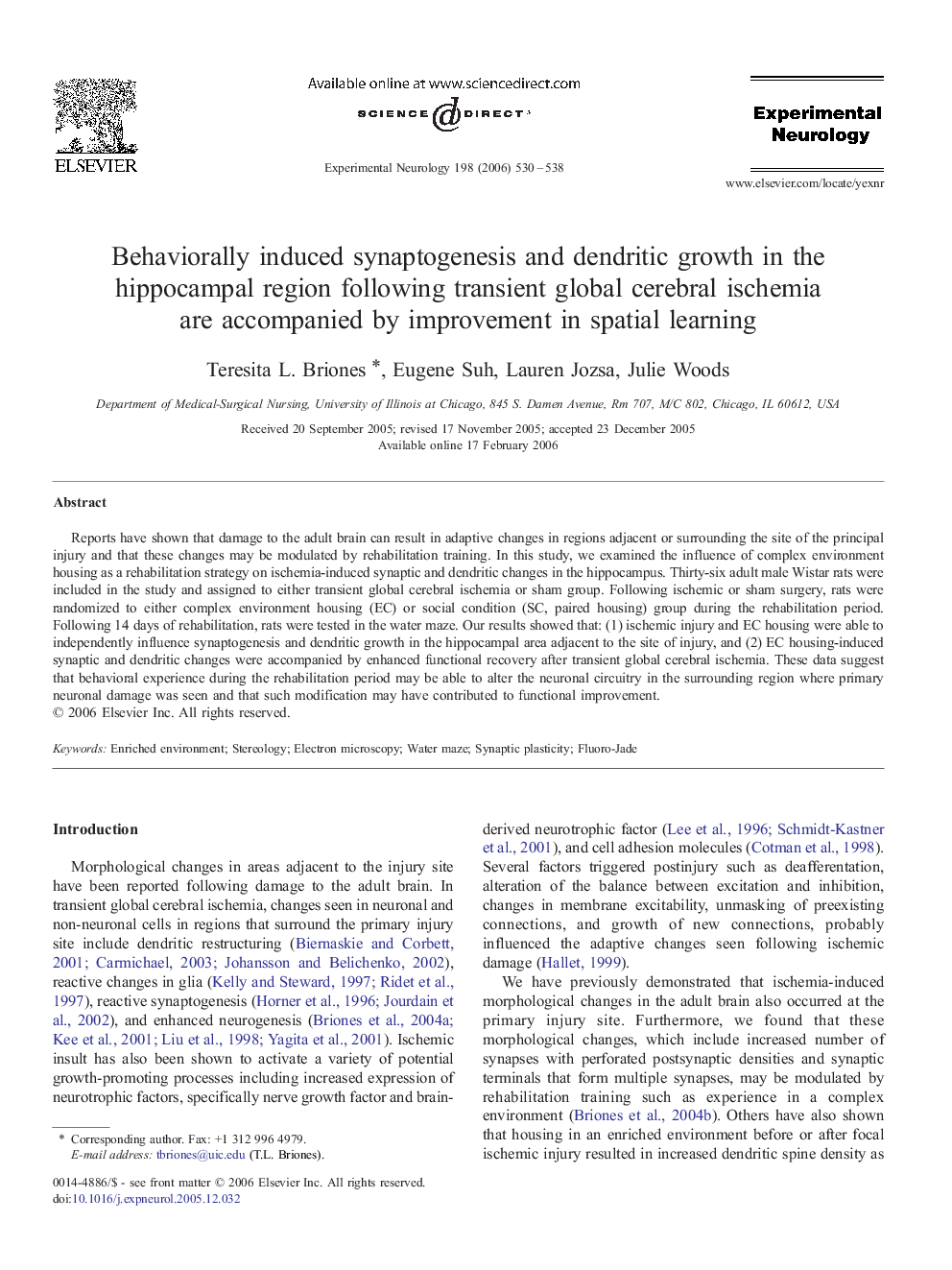| کد مقاله | کد نشریه | سال انتشار | مقاله انگلیسی | نسخه تمام متن |
|---|---|---|---|---|
| 3057476 | 1186599 | 2006 | 9 صفحه PDF | دانلود رایگان |

Reports have shown that damage to the adult brain can result in adaptive changes in regions adjacent or surrounding the site of the principal injury and that these changes may be modulated by rehabilitation training. In this study, we examined the influence of complex environment housing as a rehabilitation strategy on ischemia-induced synaptic and dendritic changes in the hippocampus. Thirty-six adult male Wistar rats were included in the study and assigned to either transient global cerebral ischemia or sham group. Following ischemic or sham surgery, rats were randomized to either complex environment housing (EC) or social condition (SC, paired housing) group during the rehabilitation period. Following 14 days of rehabilitation, rats were tested in the water maze. Our results showed that: (1) ischemic injury and EC housing were able to independently influence synaptogenesis and dendritic growth in the hippocampal area adjacent to the site of injury, and (2) EC housing-induced synaptic and dendritic changes were accompanied by enhanced functional recovery after transient global cerebral ischemia. These data suggest that behavioral experience during the rehabilitation period may be able to alter the neuronal circuitry in the surrounding region where primary neuronal damage was seen and that such modification may have contributed to functional improvement.
Journal: Experimental Neurology - Volume 198, Issue 2, April 2006, Pages 530–538